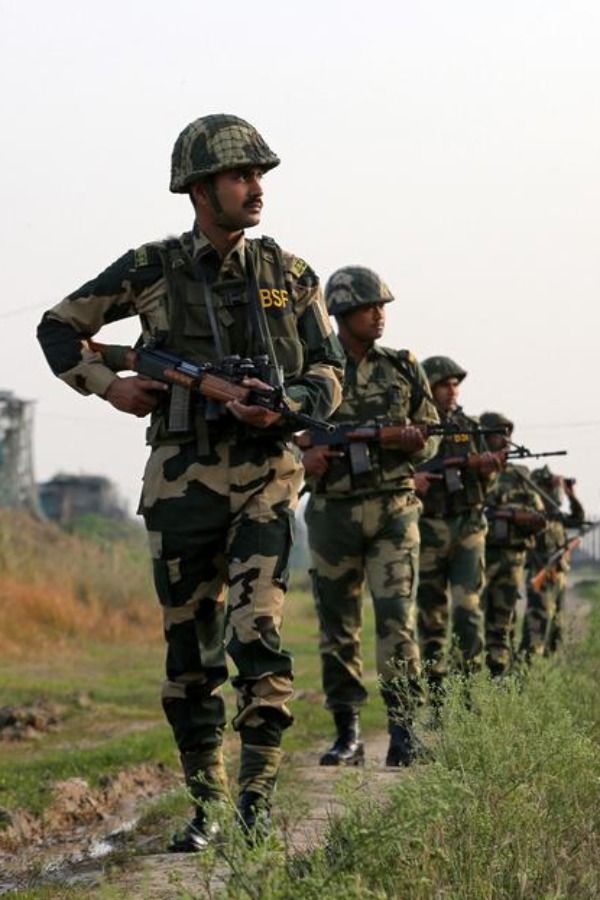
Table of Contents
Infantry Day: Honoring the Unsung Heroes of the Battlefield
Introduction
Infantry Day, celebrated annually on October 27, stands as a powerful reminder of the sacrifices and valor of the infantry soldiers, the core warriors of any army. On this day, armed forces and citizens alike pay tribute to the infantry units that serve on the frontlines, often undertaking the most challenging and dangerous operations. The day has special significance for India, as it commemorates the actions of the Indian Army’s infantry in 1947, soon after the country achieved independence. This historical event marked a turning point, solidifying the role of the infantry as protectors of sovereignty and guardians of national security.
The Historic Moment: October 27, 1947
The origins of Infantry Day in India trace back to the tumultuous period following independence in 1947. On October 27, the Indian Army deployed its first infantry unit, the Sikh Regiment, to the Kashmir Valley in response to a tribal invasion backed by Pakistani forces. This mission was critical, as the princely state of Jammu and Kashmir was on the brink of being overrun. Maharaja Hari Singh, the ruler of Jammu and Kashmir, had sought India’s assistance, signing the Instrument of Accession to ensure the region became a part of India.
The Sikh Regiment was tasked with a challenging mission: to safeguard the Srinagar airfield and push back the invading forces. Despite facing significant challenges, including challenging terrain and logistical constraints, the regiment displayed exemplary courage. The timely arrival of Indian infantry troops turned the tide in favor of the Indian Army and played a crucial role in securing the Kashmir Valley. This pivotal day established the reputation of India’s infantry as the stalwart defenders of the nation.
Rise of Infantry’s Significance in Modern Warfare
Over the years, the role of the infantry has evolved, adapting to the demands of modern warfare. Traditionally known for their on-the-ground engagement and close-combat capabilities, infantry units are now also trained in advanced tactics and equipped with sophisticated technology. Infantry soldiers are deployed in a wide range of scenarios, from counter-insurgency operations to peacekeeping missions, often undertaking roles that extend beyond conventional warfare.
Their adaptability and bravery remain fundamental to their success. During conflicts such as the Kargil War of 1999, Indian infantry units once again demonstrated their resilience, combating adverse weather, high-altitude conditions, and a heavily armed enemy to reclaim lost territories. Their valor has consistently underscored the infantry’s indispensable role in ensuring India’s security and maintaining peace in volatile regions.
Setbacks and Challenges Faced by the Infantry
Despite their vital role, infantry soldiers face numerous challenges, both in combat and in peacetime. The nature of their work exposes them to life-threatening situations, demanding a high degree of physical and mental resilience. Additionally, infantry troops often operate in hostile environments with limited resources, facing rugged terrain, extreme weather conditions, and often, a well-entrenched adversary.
The psychological toll on these soldiers is profound. Frequent deployments in combat zones, away from family and friends, can lead to immense stress. Moreover, the demands of the job require intensive training, which strains both body and mind, while making it challenging to maintain personal relationships. Despite these adversities, infantry soldiers continue to serve with unyielding dedication, upholding their commitment to protect the nation.
Redemption and Honors: Recognizing Their Sacrifices
Infantry Day serves as a tribute to these unsung heroes, offering a platform to honor their sacrifices and valor. Military ceremonies are held across the country, and war veterans and fallen soldiers are remembered for their service. The day also highlights the legacy of bravery associated with the infantry, celebrating their contribution to India’s security and sovereignty.
To acknowledge their sacrifices, the government and the armed forces provide honors and awards, such as the Param Vir Chakra, Maha Vir Chakra, and Vir Chakra. These recognitions not only pay homage to the fallen but also inspire future generations to serve the nation with the same dedication. Additionally, rehabilitation programs for war veterans and their families are conducted, reflecting society’s gratitude and respect for these warriors.
Conclusion
Infantry Day holds a unique place in India’s history and military tradition. It not only commemorates a crucial victory in the country’s early years of independence but also celebrates the indomitable spirit of the infantry soldiers. The day serves as a solemn reminder of the sacrifices made by these brave men and women and reinforces the importance of supporting them in their mission to protect the nation.
As India continues to face new security challenges, the role of the infantry remains paramount. Infantry Day is a moment for every Indian to reflect on the contributions of these defenders of freedom, and to recognize the essential role they play in preserving the nation’s sovereignty and peace.
For more infomation visit : : Indian Army Official Site

These aare in fact enormous ideas in regarding blogging.
You have touched some good factors here. Any way kee
up wrinting. https://Ternopil.pp.ua